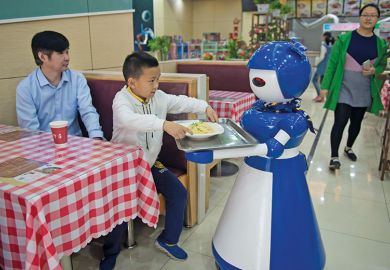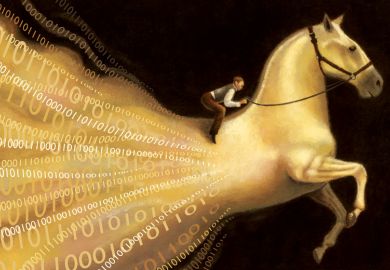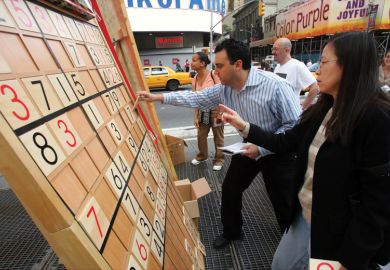UK researchers are launching a multimillion-pound drive to apply new data science and artificial intelligence tools to historical resources.
The Living with Machines project, which has received £9.2 million from UK Research and Innovation, aims to create tools and software that will allow digitised collections to be analysed at scale for the first time.
It brings together scientists from the Alan Turing Institute and curators from the British Library, as well as researchers from the universities of Cambridge, East Anglia and Exeter, plus Queen Mary University of London.
The project will initially focus on the aftermath of the Industrial Revolution and already digitised collections such as newspaper archives, and documents including censuses and registers of births, marriages and death.
It is hoped that new tools will allow researchers to interrogate huge datasets more quickly and to track how words and sentiments change over time, while also bringing the experience of ordinary people – rather than just decision-makers and public commentators – to the forefront of the debate.
Ruth Ahnert, senior lecturer in Renaissance studies at Queen Mary, said that historians had “not traditionally had the training to look at data at scale”.
By zooming in and out of large quantities of material from newspapers, censuses and other sources, academics hope to illuminate the broad patterns of how “people became accustomed to a new mechanised world” but also to get to grips with much more specific questions.
“If we see a shift in sentiment in Leeds at a particular date, for example, we can ask: has a new factory opened there or has there been a new influx of workers? Can we see a specific moment of change around an industrial accident, find out who was involved and track them through different sources?” Dr Ahnert asked.
Outputs from the whole project will include monographs and papers, an exhibition, plus a popular book and broadcasts. All computational models will be made openly available, so other researchers can use them to track changing sentiments in newspapers, for example, in very different times and places.
It is also hoped that the research will feed into debates about the impact of the modern “fourth industrial revolution”, characterised by the rise of artificial intelligence and automation, by tracking attitudes to machines and mechanisation in the past.
“The Turing Institute has just got a grant for a massive AI initiative, so the projects are growing alongside each other under one roof. I hope for some cross-pollination, sharing research on urban analytics around, for example, migration,” Dr Ahnert said. “[We will make the case that] humanities scholars and historians have a part to play in this debate.”
Register to continue
Why register?
- Registration is free and only takes a moment
- Once registered, you can read 3 articles a month
- Sign up for our newsletter
Subscribe
Or subscribe for unlimited access to:
- Unlimited access to news, views, insights & reviews
- Digital editions
- Digital access to THE’s university and college rankings analysis
Already registered or a current subscriber?










